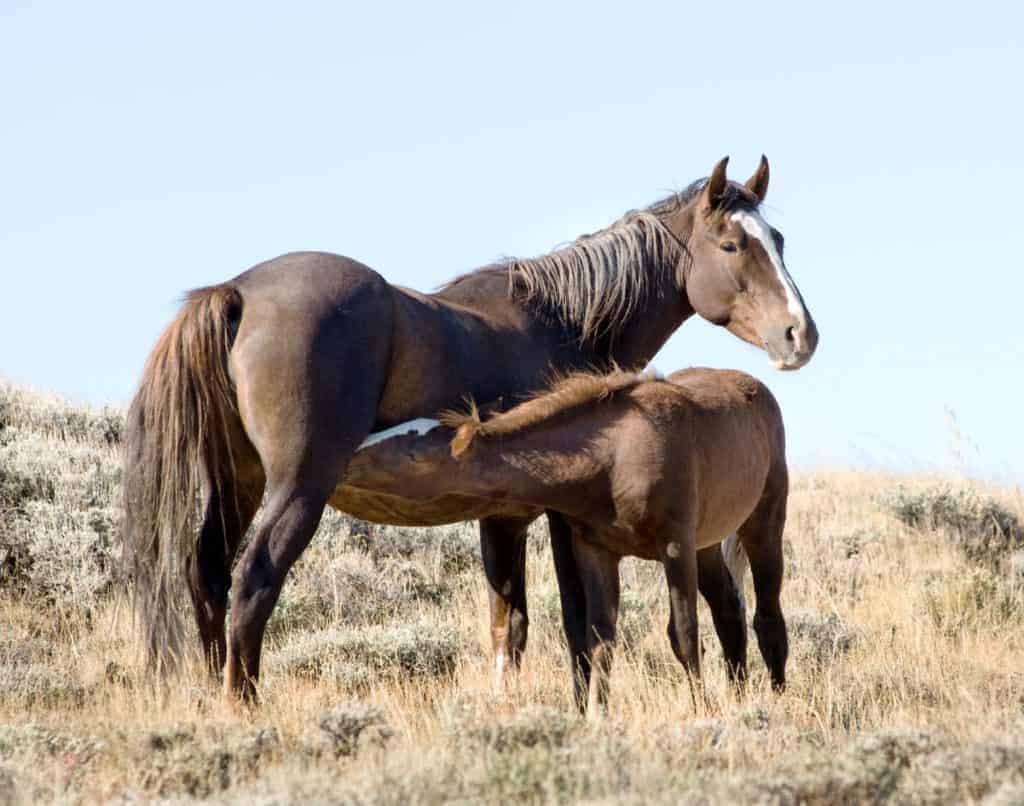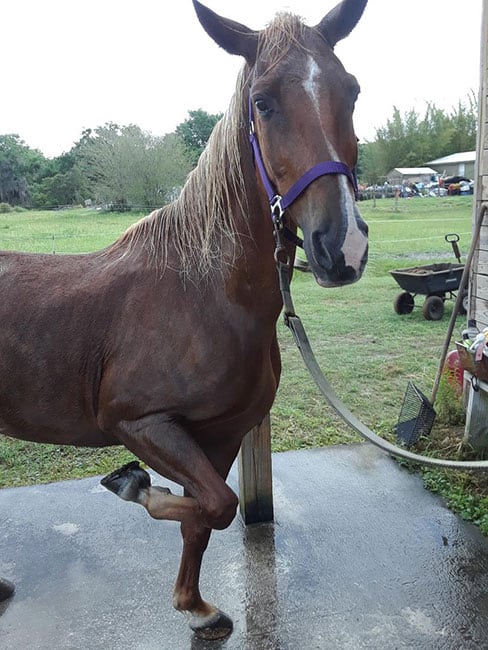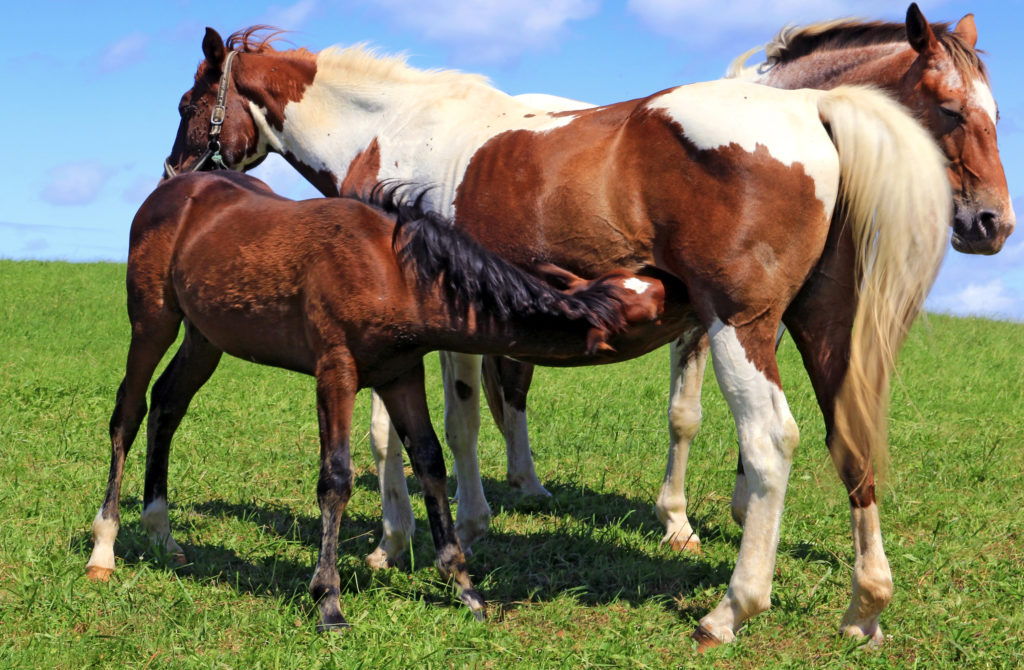
Recipes for Success: Formulating Equine Diets
Does your horse need a dollop, dab, pinch, or peck? Learn to formulate a diet based on your horse’s age, body condition, and health status.

Does your horse need a dollop, dab, pinch, or peck? Learn to formulate a diet based on your horse’s age, body condition, and health status.

A Standardbred farm near a fracking site managed milk aspiration/subdued mentation in multiple foals over three years. Although treatment was costly, recovered foals were as athletic as unaffected foals when they went on to race.

Omega-3 fatty acids offer horses health benefits, but are fish sources okay for horses to eat?

Are you confused about nutraceuticals in your horse’s diet? Learn more from our equine nutrition expert.

Researchers observed feral herd interactions during a three-year study and found effective mare-foal vocal communication seems to help foals survive.

This is the first genetic variant for hypoparathyroidism identified in any domestic animal species. Testing is now available.

Strep zoo are responsible for a variety of diseases and issues in horses, including pneumonia, abortions, and upper respiratory, wound, testicular, and neonatal infections.

Though they make up only a tiny part of horses’ diets, micronutrients play big roles in major physiological functions, ranging from bone and muscle performance to digestion to hormone signaling.

Human nutritionists encourage eating whole foods and avoiding processed ones. Does the same logic apply to our horses?

Learn about the risk factors associated with horses getting gastric ulcers, as well as diagnosis and basic management and treatment.

Acute respiratory distress syndrome (ARDS) causes rapidly progressive and severe respiratory failure and is associated with high mortality in affected patients.

A new study by French scientists suggests that allowing foals and their dams to wean at their own pace could be a more welfare-friendly breeding strategy than traditional methods.

What would be the best plan for handling a foal whose dam is being covered by a stallion?

Every year horse owners across the United States and Canada whose mares have lost foals or whose foals have been orphaned turn to Facebook to connect with one another.

One horse owner’s experience with her adult horse that was born prematurely.

One researcher describes what we know about the receiving mare’s effect on the foal in embryo transfer scenarios.
Stay on top of the most recent Horse Health news with
"*" indicates required fields